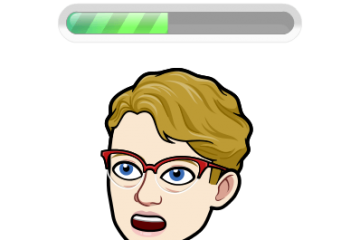For the third module of 23 things (Thing 1 & 2) the tasks were to review some materials and google yourself. I have been attempting to cultivate my online presence (somewhat half heartedly) over the last 5 years. This module really got me thinking about as to why I am trying to do so. Ultimately, in today’s technological age, employers and universities are likely going to Google me, and I want to contribute to (perhaps attempt to control) the story of me that they will find online.
For this module, I thought it might be interesting to answer some of the questions that the University of Edinburgh’s Institute for Academic Development has put forward.
Who am I now?
I think currently my digital footprint is a bit of a mishmash. I try to promote my research area, but most of my posts on social media (e.g., Twitter) tend to be about my experience as a grad student. I think social media is a great place to share and can be useful in ensuring you don’t feel so alone while going through the process. Overall, I think that what people would find about me online, if they were to google me is a representation of me as a grad student, but not necessarily of me as an expert in my field. I do think that perhaps this has to do with imposter syndrome. I’m still very hesitant to say I am an expert in my field (especially when I’m still trying to understand just what my field is beyond research on bullying). What I do know is I’m fairly good a being a student, so I tend to showcase that.
Who am I going to be?
I would like people to be able to see me as an expert in my field, or as an expert in research communication. That being said, I feel that there is a great scicomm movement happening, but I am struggling to see how I can use social media and my website to make research in my field (social sciences/social-organizational functioning/education) fun and engaging and digestible. With that, I did find it interesting that when I did a Google search for myself in incognito mode, my Twitter account didn’t come up. However, my website did, and then just a lot of other Heather Woods’.
The only account that I keep private and personal is Facebook. I don’t share much there and mainly use it as a way to connect with old friends and family. Meanwhile, Twitter and Instagram are generally used for connecting with other grad students and people within academia and industry.
In relation to my current affiliations and their professional guidelines, I was surprised that most information was about branding, and I was not able to find too much about information about professors or how students should affiliate themselves with the institution or how they should manage their presence. One thing I am concerned about in relation to my professional presence is sharing my work (e.g., preprints). I support creative commons, and think that being able to share your work is great for getting feedback and building stronger ideas and arguments. However, I am concerned about how this might impact future publications. I support open journals, and would hope that they support the process of pre-prints and sharing of ideas publicly, but I’m nervous about how it will continue to play out.
Final thoughts
I think I am pretty happy with how my presence is developing and evolving. I think I should try to seek out other research communicators to see how others may be attempting to show their social science research in a fun and engaging way. I do my best to ensure that I am open, honest, and respectful in my interactions and the content that I am sharing. If I am sharing something with someone else, or someone else is in a photo I do my best to ensure that they are happy with the image being portrayed.



0 Comments